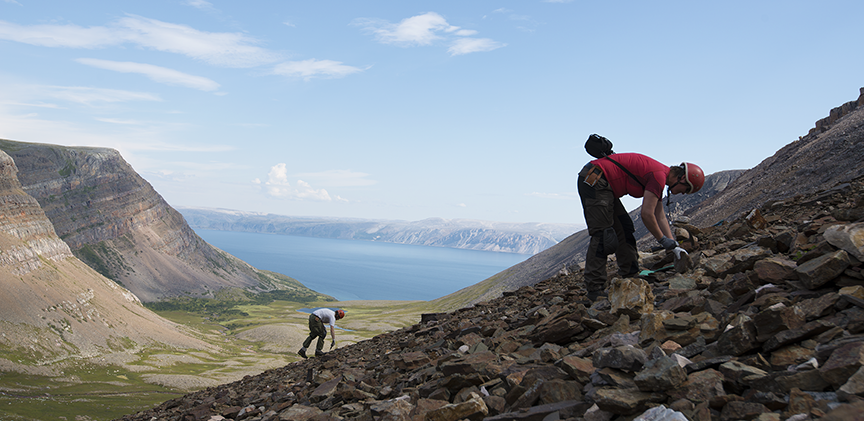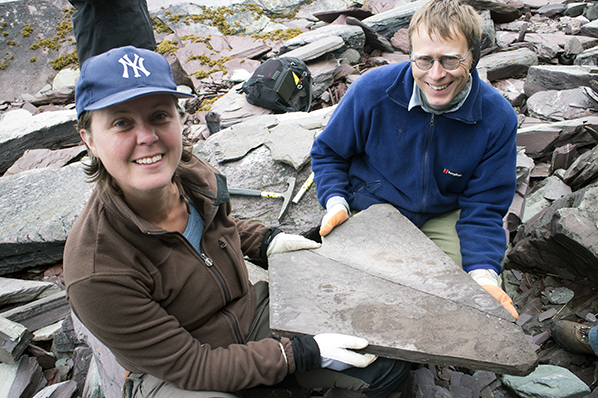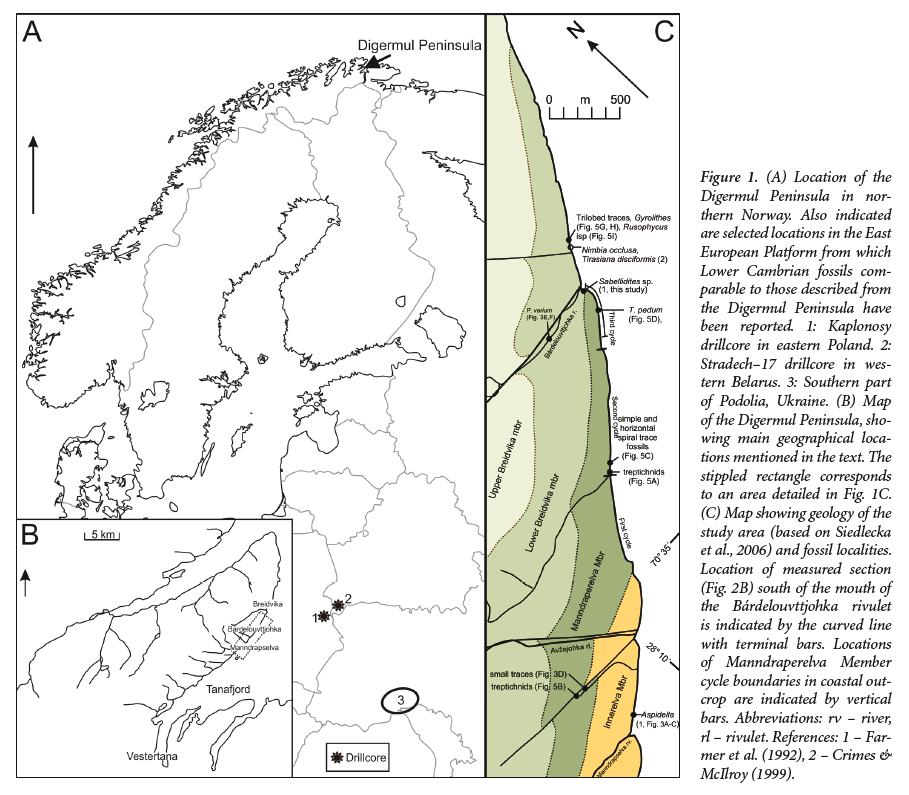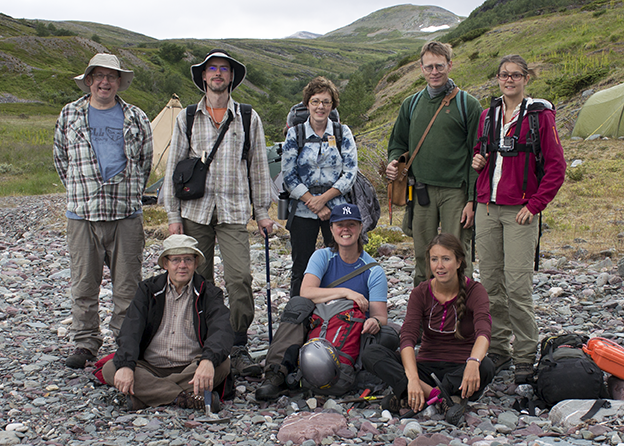Forskergruppen for tidlig liv på Digermulhalvøya
Join this international team of researchers as they search for evidence of early life in Finnmark, Norway!

Evolution of early biota and complex ecosystems took place during the Ediacara-Cambrian transition. A suite of stem-group bilaterian animals, vendobionts, radially organized organisms and inhabitants of the planktonic realm emerged in a succession of events leading to the increased diversity of the Cambrian seas. In Scandinavia this entire transition can only be studied on the Digermul Peninsula in northern Norway. Here about 3 000 m of siliciclastic sediments of nearly unprecedented preservation and completeness are preserved, spanning the Ediacara-Cambrian transition and continuing into the Lower Ordovician. 20 years ago Ediacara type fossils were found here, and during 2011 new Aspidella type organisms came to light. Well-preserved organic-walled microfossils give firm age constraints on the succession. Trace fossil abundance and preservation is exceptional. Treptichnus pedum and associated trilobed trace fossils in combination with occurrences of Granomarginata prima and the first report of Cochleatina in Scandinavia places the Ediacaran – Cambrian transition at the third cycle of the Manndraperelva Member (Stáhpogiedde Formation). The age of the lower part of the Stáhpogiedde Formation (Innerelva Member) is suggested to be younger than ca 560 Ma based on the presence of Aspidella, vendotaenids and possible simple trace fossils. The exceptional Digermul succession is thus in a central position for understanding the evolution and development of early complex ecosystems.

Team leader, Dr. Anette Högström (Tromsø University Museum) and collaborating scientist, Dr. Jan Ove R. Ebbestad (Museum of Evolution, Uppsala University) pose with slab containing dozens of the disc-shaped Ediacaran fossil called Aspidella.
 |
|
Map of the study area on the Digermul Peninsula, Finnmark, Norway.
|
 |
| 2014 Digermulen Early Life Research Group team photograph. |
RESEARCH TEAM:
Tromsø, Norway
Dr. Jan Ove R. EbbestadCollaborating ScientistMuseum of EvolutionUppsala UniversityUppsala, Sweden
Dr. Sören JensenCollaborating ScientistUniversidad de ExtremaduraBadajoz, Spain
Dr. Teodoro PalaciosCollaborating ScientistUniversidad de ExtremaduraBadajoz, Spain Dr. Guido MeinholdCollaborating ScientistUniversity of GöttingenGöttingen, Germany Dr. Wendy TaylorCollaborating ScientistUniversity of Cape Town,Cape Town, South Africa Dr. Malgorzata Mozcydlowska VidalCollaborating ScientistUppsala UniversityUppsala, Sweden Mr. Magne HøybergetMandal, Norway Ms. Linn Novis PhD StudentTromsø University Museum Tromsø, Norway Mr. Zhiji OuPhD Student Tromsø University Museum Tromsø, Norway
